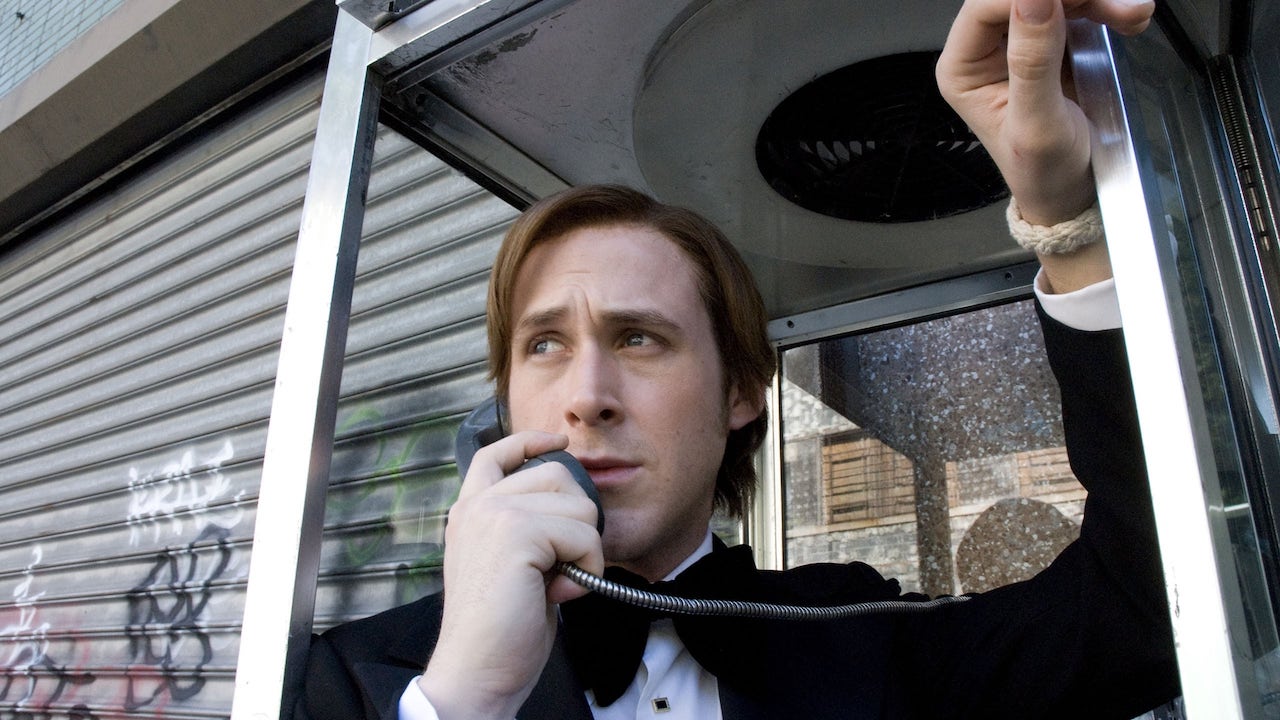The Jinx is over – but Robert Durst’s story began in 2010 with All Good Things
Andrew Jarecki’s film got Durst’s attention, leading to their phenomenal true crime collaboration—and that jaw-dropping confession.

HBO true crime phenomenon The Jinx just concluded its follow-up season, with Robert Durst dying after finally being convicted for one of his three alleged murders. Eliza Janssen revisits the forgotten film project that started it all: All Good Things, with Ryan Gosling playing a thinly-veiled Durst analogue.
Have we perhaps, finally, heard the last of Robert Durst’s story? He died in 2021 at age 78; after his exhilarating conviction for the murder of friend Susan Berman but before his trial for the alleged murder of his wife Kathleen McCormack, all the way back in 1982. The final and most definitive word on Durst’s life and crimes will always be Andrew Jarecki’s HBO series The Jinx, with its follow-up second season concluding this week; countless threads left dangling by its sinewy, reedy-voiced subject’s death.
After a lifetime of dodging convictions for three separate murders, it feels like Durst was at last saved by the bell—or by some merciful reaper with odd comic timing. We’d certainly expect another season of Jarecki’s phenomenally popular show covering the heartbreaking McCormack disappearance that started it all, if it weren’t for Durst finally slipping from this mortal coil.
To me, one of the most fascinating and unanswerable questions about The Jinx remains the pivotal decision behind Durst’s involvement; why would this strange, evasive little man approach HBO, a decade after seemingly getting away murdering and butchering his Texas neighbour Morris Black?
Episode one of the 2015 series explains the how of Jarecki and Durst’s bizarre friendship, but not the why. Jarecki speaks from the red carpet premiere of his 2010 drama All Good Things, “inspired” by the life of Durst and his tragic romance with Kathleen. To dodge a defamation suit, Bobby becomes ‘David’, and Kathleen is ‘Katie’—but the dramatisation is close enough to true events that Jarecki verbally hopes that “Robert Durst himself could sit and watch and have an emotional reaction to” the end result.
Jarecki’s dreams came true when Durst indeed reached out. “I’m not interested in doing a true crime kind of stuff”, his trademark warble reveals over an early phone call, in the true crime show’s pilot episode: “you know more about Robert Durst than those people do.” As we witness the last of Robert Durst, or at least the conclusion of how The Jinx saw the man, it’s the perfect time to wind back the clock in an attempt to understand how Durst saw himself—in the form of a young Ryan Gosling, playing ‘David Marks’ in the overwrought crime-mystery All Good Things.
Jarecki begins with home video footage of toddler David playing tennis with his late mother, an early evocation of the wound that’ll come to characterise—and perhaps excuse—Durst’s most empathetic weaknesses. The idyllic, grainy shots bring to mind the opening credits of Succession, and, inevitably, Durst’s disastrous turn on the stand in The Jinx’s most recent episodes, in which he falsely remembers playing Uno and throwing Frisbees with his deceased mum.
For the first half of All Good Things, I can see how the parental trauma faced by little Bobby—uh, I mean, David—would’ve flattered the older Durst, with Frank Langella playing “Sanford Marks” as an elitist ogre of a patriarch who can’t understand the pure love between David and Katie. Money is the root of all evil, Jarecki’s film accepts, and the financial dynamic between the spoiled heir apparent David and free-spirited Katie meant they were doomed from day dot. “She’s never gonna be one of us”, Langella growls at Gosling, a baby-faced matinee idol any ageing criminal would be stoked to get represented by; our protagonist beams and replies, “I know, isn’t it great?”
Jarecki and his The Jinx writer Marc Smerling fill in the blanks of Durst’s privileged personal life with fictionalised moments of pathos, some of which are impressively attuned to some imagined, tragic version of the man. His guilty memories of his mother’s suicide blossom into a dramatically juicy Oedipus complex, even feeding into suggestions of David’s latent queerness. We get to see Gosling disguised in drag for Durst’s reclusive 2000s period, his crossdressing strangely undiscussed beyond a few mentions in The Jinx. Perhaps Jarecki wasn’t bold enough to ask Durst in person whether, as he implies here, his female disguise was some sad attempt to inhabit the body of the mother he lost.
David refuses to give Katie the baby she so longs for, because of an internal and inherited brokenness that goes mostly unexplained. It’s an ambiguous dark spot in the character that sometimes hinders the film, but it also feels like Jarecki asking tantalising questions he’ll later try and answer in the realm of non-fiction. While the real Durst would never describe himself as “fucked up” or explode into the kind of emotion Gosling does, screaming with agony in a therapy session, here the mythic arc of a hollowed-out little rich boy becoming a homicidal monster can handle a little embellishment.

Unlike The Jinx, All Good Things is also able to present an inner life for Kathie/Katie, vibrantly performed by Kirsten Dunst. She’s an active presence here in a way that The Jinx’s archival photos and tearful family member talking heads can’t offer; she blackmails the Marks family, spirals after being urged into an abortion by David, and fatally tries to regain control of her life once she’s accepted into medical school.
A funny thing happens once Gosling puts on a pair of nerdy wire-framed glasses, signalling his metamorphosis into the insecure, controlling character we psycho-analyse in The Jinx. It was weird enough to see Durst initially romanticised as a dreamy stoner with sick abs, but once Katie’s mysterious death looms, his character disappears into a morass of dark guessing games. He becomes a horror movie villain, looming over Katie’s shoulder and violently dragging her from parties. What elements of this characterisation did Durst watch with appreciation, or recognition?
From this point, Jarecki’s fabulations are far less plausible. The reskinned character names are hilarious (Jeanine Pirro becomes Janice Rizzo, and poor Morris Black is ‘Malvern Bump’), and David is accused of killing even his sweet pet dog, whilst ‘Bump’ does the dirty work of slaying “Deborah Lehrman” (the movie’s raucous Berman stand-in, Lily Rabe). These moments feel like Durst fanfiction, greedily imagined by a true crime obsessive desperate to tie up loose ends. In their most bizarre creative flourishes, however, they’re thrilling when held up against the newest episodes of The Jinx.
Rabe’s Lehrman describes David’s mother’s death to Katie—“cracked her skull open like a walnut on the driveway!”—with a breathless cruelty that gets proven true in Berman’s callous phone calls, heard in The Jinx’s second season. The entire film is narrated by a prosecutor interrogating an elderly David, who answers with numbed half-truths; Jarecki would soon experience this dynamic in the most literal of ways, feeding the real Durst many of the exact same questions.

And, most chillingly, All Good Things has the eerie foresight to include scenes of David mumbling to himself—a trait Katie notices early on, and which of course blessed The Jinx with its most iconic moment in the final, accidental confession of season one. All Good Things isn’t a great film, dwelling in the cliches and under-realised character decisions that remind one of a TV true crime dramatisation rather than a compelling thriller in its own, fictional right. But it’s an absorbing watch once you’ve been left hanging by The Jinx’s new episodes—proof of Jarecki’s command over decades of confusing and contradictory material, with some disturbing smoking gun moments already realised and put to screen.
We’ll never know, unfortunately, just what the film got right in Durst’s eyes: his attraction to Jarecki’s hypothesis or filmmaking is yet another question mark that the murderer’s death leaves dangling. Neither a defence nor a monster movie about an unforgivably evil rich man, All Good Things merely adds to the addictive mystery that’ll forever surround Durst and his restless victims.

























